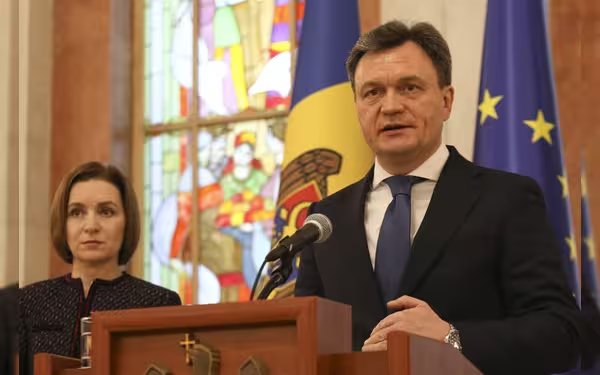Tuesday, July 2, 2024 03:52 PM
Moldova's President Sandu Faces Resistance from Pro-Russian Gagauzia
- Gagauzia opposes Moldova's judicial reforms and advocates for Russian language recognition
- President Sandu rejects Gagauz leader due to ties with pro-Russian party
- Analysts warn of Kremlin-backed strategy to destabilize Moldova
 Image Credits: Friedrich Naumann Foundation
Image Credits: Friedrich Naumann FoundationMoldova's pro-European government faces opposition from pro-Russian Gagauzia over judicial reforms and language recognition. President Sandu's stance against Russian influence raises concerns of destabilization.
Moldova's pro-European government is encountering resistance from the pro-Moscow Gagauzia region, where leaders have opposed proposed judicial reforms and are advocating for enhanced status for the Russian language. Gagauzia, home to 140,000 mainly ethnic Turks practicing Orthodox Christianity, has had strained relations with central authorities since Moldova gained independence from the Soviet Union in 1991.
The local assembly of Gagauzia recently rejected judicial reforms that would close an appeal court in the region and called for Russian to be granted special status alongside Moldova's official language, Romanian. President Maia Sandu has refused to approve the appointment of the current Gagauz leader, Yevgenia Gutul, due to her ties to a banned pro-Russian political party led by convicted fraudster Ilan Shor.
Prime Minister Dorin Recean has supported the judicial reforms, emphasizing the need to address criminal elements in the region. Sandu views Russia as a significant threat and has scheduled a referendum on EU membership later this year, alongside a presidential election.
Gutul, wary of the EU integration plan, has sought support from Russia, raising concerns about potential interference in Moldova's political landscape. Analysts believe that Gagauzia's demands, including the push for Russian language recognition, are part of a strategy endorsed by the Kremlin and Shor to destabilize Moldova ahead of key political events.
In the midst of preparations for the upcoming elections and referendum, Moldova faces internal divisions and external pressures that could impact its path towards European integration and political stability.













